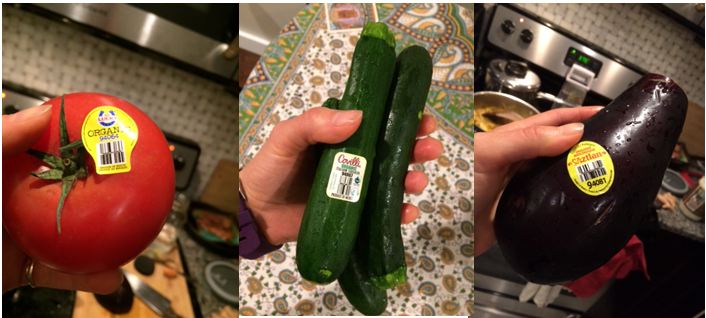Easier said than done right....? I have a theory that it's easier to be sad and blue and angry at the world than it is to be cheery and all smiles all the time, to maintain a positive outlook, and to simply feel happy. I believe this because I know how easy it is to slip into a funk. And after you slip, it takes a lot of energy to get back up again.
Steven Kotler, New York Times Best Selling Author and Founder of the Flow Genome Project reports that we pick up nine negative things for every one positive thing. That's because information that enters our brain goes right to our amygdala, the danger detector; it's a survival tactic. To undo the effects of that negative moment, we need at least six positive ones to make up for it (listen to this interesting pod cast here). Crazy! The Wall Street Business Journal also mentions that the best ratio of positive feedback to constructive criticism is 5.6 to 1 for optimal performance in the work place. So, we need a constant supply of positive thinking and experiences. No wonder it's easier to be a grouch.
Although I do believe it's easier to be a Debbie Downer, here's what else I believe...
- Once you get happy, it's easier to stay in that state of mind. It's like momentum: the more speed an object has, the harder it is to slow it down and change its direction.
- When you are happy, better things come your way because you are more receptive and open to them.
- Happiness brings with it confidence, trust, a sense of ease, and success.
- Happiness is a key component to health. [FACT: our gut bacteria influence our emotions. Those with depression and anxiety have benefited from supplemental probiotics (read more here). FACT: our gut bacterial help regulate serotonin production, 90% of which is made IN OUR GUTS! Serotonin is a mood-modulating chemical (read more here).] I believe the the opposite is also true, that positive mood benefits the good guys and gals in the gut.
- Our bodies are fundamentally healthy and want to thrive. Our spirits are fundamentally good and love is the only answer. Sickness occurs when the body or mind get out of balance. But as long as our spirit is good, we can correct our physical self.
Steven Kotler, New York Times Best Selling Author and Founder of the Flow Genome Project reports that we pick up nine negative things for every one positive thing. That's because information that enters our brain goes right to our amygdala, the danger detector; it's a survival tactic. To undo the effects of that negative moment, we need at least six positive ones to make up for it (listen to this interesting pod cast here). Crazy! The Wall Street Business Journal also mentions that the best ratio of positive feedback to constructive criticism is 5.6 to 1 for optimal performance in the work place. So, we need a constant supply of positive thinking and experiences. No wonder it's easier to be a grouch.
Although I do believe it's easier to be a Debbie Downer, here's what else I believe...
- Once you get happy, it's easier to stay in that state of mind. It's like momentum: the more speed an object has, the harder it is to slow it down and change its direction.
- When you are happy, better things come your way because you are more receptive and open to them.
- Happiness brings with it confidence, trust, a sense of ease, and success.
- Happiness is a key component to health. [FACT: our gut bacteria influence our emotions. Those with depression and anxiety have benefited from supplemental probiotics (read more here). FACT: our gut bacterial help regulate serotonin production, 90% of which is made IN OUR GUTS! Serotonin is a mood-modulating chemical (read more here).] I believe the the opposite is also true, that positive mood benefits the good guys and gals in the gut.
- Our bodies are fundamentally healthy and want to thrive. Our spirits are fundamentally good and love is the only answer. Sickness occurs when the body or mind get out of balance. But as long as our spirit is good, we can correct our physical self.
Here are 10 things to help you cultivate happiness...
If you are interested in learning more about the relationship between food and mood, check out these books by author Julia Ross:
1. The Diet Cure (more information here)
2. The Mood Cure (more information here)
- Be grateful. Call it cliche, but the simple act of counting your blessings works wonders. Remember what Steven Kotler said about the 6:1 ratio? This practice also helps keep our mind focused on the positive. You can write down 6-10 things in a journal, or simply say them to yourself quietly before going to sleep, or whatever, there really aren't any rules.
- Find laughter daily. I'm blessed to have a partner who makes me laugh every day, and he does it without trying. I'm a lucky girl in that regard. I also find that sometimes, all I need is a funny movie or some stand-up comedy to turn my gray skies blue again. That's because laughter releases endorphins - more "feel-good" chemicals. Can't laugh? Fake it 'til you make it.
- Start doing more of the things that make you happy and less of the things that don't. If you don't like cooking, save yourself some time with crock-pot recipes so you can pull out your camera again and start taking those nature shots you love! It's been too long... You never know, that thing you love could become your next career. Here are 40 recipes to browse.
- Spend time with people who inspire you. Inspiration is contagious (and so is grouchiness).
- Do two inspirational quests every week. That could be test-driving the latest model of your favorite car, eating at a new restaurant, finding a book on gardening at the library...
- Spend time in nature. It's a fact. Nature is medicine (so ask your doctor before beginning treatment). It's grounding, helps reduce stress, and lowers blood pressure. Plus, it's hard to be upset when bathing in Mother Nature's beauty and bounty.
- Vibe on the positive: Meditation helps us connect with our bodies and focus on the present moment. We spend way, way too much time worrying about the future and pondering the past. But when we meditate, noting exists except the moment in which we are living. This gives us time to turn our attention to our bodies, where we can consciously weave happiness into all of our cells. Here is a gratitude meditation for you to try.
- Move the body: Exercise helps oxygenate the cells, releases endorphins, and helps reduce stress and anxiety. From walking to dancing to kayaking, there's something for everyone.
- Eat right: In a nutshell, eat less sugar and simple carbohydrates and eat more organic vegetables and clean protein. Vegetables provide vitamins, minerals, and antioxidants. Protein (especially clean animal protein) provides the building blocks for neurotransmitters. Limiting sugar will also help keep the good bacteria in the GI tract flourishing.
- Address deficiencies: Stress, toxins in the environment, poor diet, and depleted soils all lead to nutritional deficiencies, so sometimes supplementing the diet is important. Nutrients to support brain chemistry include essential fatty acids (particularly DHA and EPA), vitamin C, B-complex, probiotics, and the methylation nutrients including selenium, cysteine, methionin, and SAMe. Download my FREE handout Foods to Support Mood here.
If you are interested in learning more about the relationship between food and mood, check out these books by author Julia Ross:
1. The Diet Cure (more information here)
2. The Mood Cure (more information here)


 RSS Feed
RSS Feed